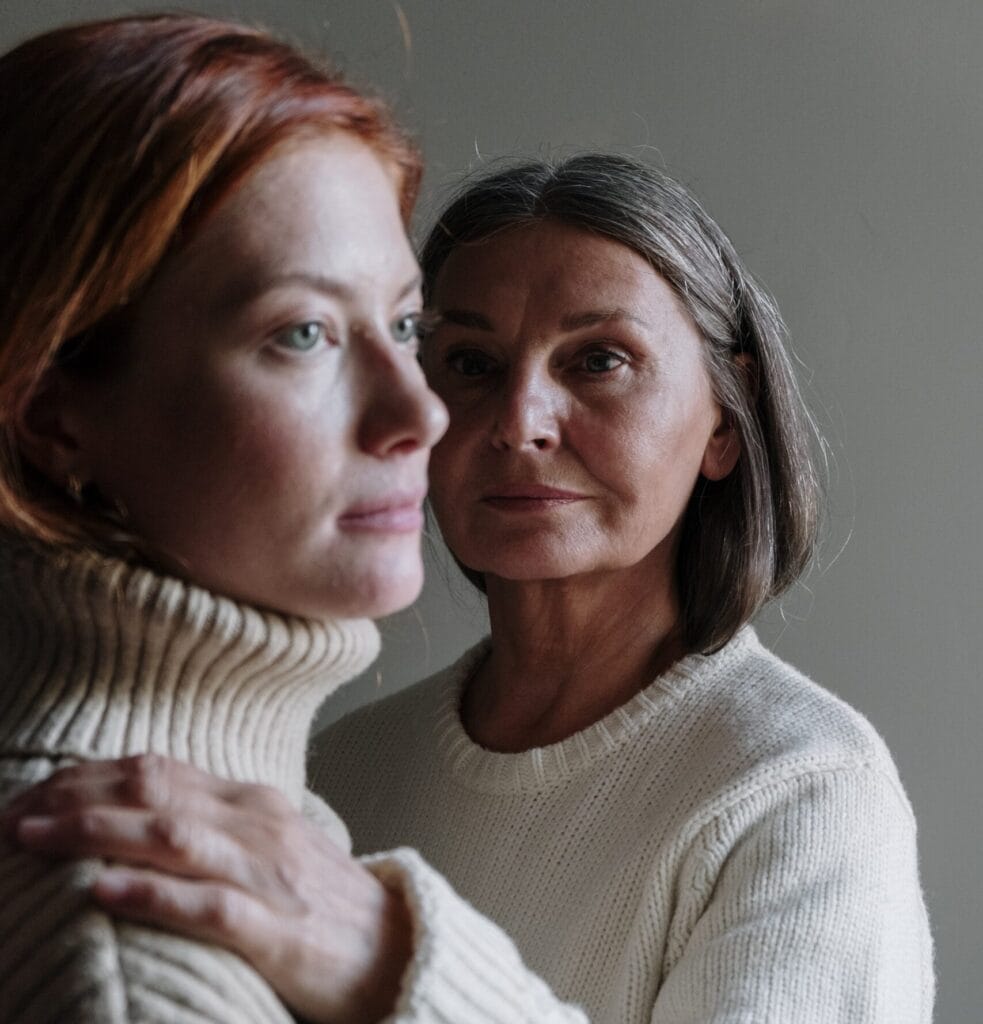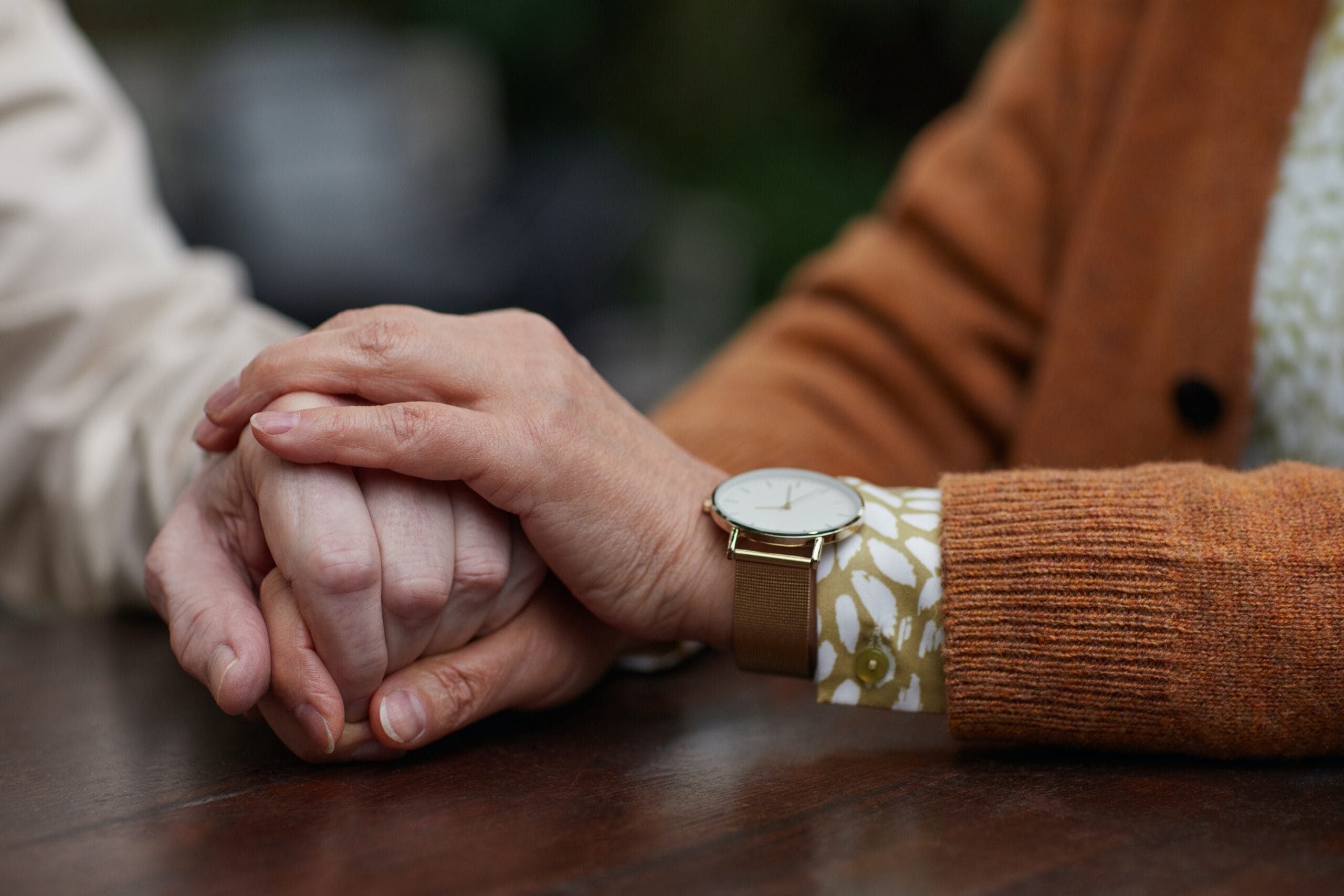We often tell people that “addiction is a family disease”; it’s a common saying and for good reason.
We know that addiction is a disease, and just like other illnesses, it can be passed down through generations of family members.
Families are also interconnected systems: the whole is a sum of each part. Family members share in each other’s experiences and can be deeply impacted by each person’s decisions, actions, feelings, triumphs, and struggles. When one person in a family has an addiction, everyone in that family unit is affected.
Recovery from addiction can also be a journey for a whole family. Each family member can play a role in supporting a loved one recovering from their addiction, while also healing themselves from the impacts of that addiction.
If you have taken the first, hard step in admitting to yourself, your family, or a trusted friend or counsellor that your family is dealing with addiction, you are already supporting your loved one and putting your family on the path to recovery.
We know that the systems your family may be using to survive addiction are familiar, hard habits to break. But positive, lasting change for your whole family is possible and you can do it together.
What Do We Mean by Family Support?
Family members often know there’s a problem long before the addicted person does. It can make for a long, lonely and frustrating road to get someone with an addiction to admit they need help. In this way, support for a family member with an addiction can happen before, during, and after that person gets help and treatment.
Family support can mean that everyone in a family who is affected by a person with an addiction is ready to admit there is a problem and they begin to seek and accept help together; a family can come together to support their loved one to get treatment while also seeking treatment and support for themselves.
Being supportive can also mean each person in the family is willing to dig a little deeper for continued patience and compassion for each other. It can mean accepting that treatment might not work the first, second, even third time, and that relapses and setbacks can happen on the road to recovery.
Building a community of other people living with addiction is another great source of support for families. Recovery from addiction is not a journey that is meant to be taken alone or in isolation, and everyone in a family can benefit from connection to people who understand where you all are. Reaching out to friends, sponsors, support groups and counsellors are all ways to build a lasting support network for you and your family.
Being kind to your loved one with an addiction, and also to yourself, is another important way to be supportive and keep hope alive in your family. Take extra care of yourself, so you have the energy for this journey, and encourage each member of the family to do the same. Make time for fun and routines you can do together like walking or bike riding, watching movies or playing board games, and doing acts of service for others.
Supporting each other to learn healthy ways to manage the emotional ups and downs that come with addiction and recovery can make your family feel strong again.
Or, as Peggy L. Ferguson says in her article 8 Really Good Reasons to be Involved in Your Family Member’s Addiction Treatment, by learning and getting involved in the treatment and recovery process together as a family, “you will have an opportunity to make decisions based on strength rather than fear and desperation.”

Learn about Addiction and Recovery
When you begin to take concrete steps to face the problem of addiction in your family, it can help to learn more about the nature of drug and alcohol addiction.
For example, being aware of the behaviour patterns that have protected your family and your secrets about the addiction can be what sets your family free and makes room for positive change. Addiction recovery programs for families can also help you learn how your loved one’s addiction has affected you, whether they are in active addiction or recovery, and can give each member in a family better tools and strategies to take the next steps towards healing.
There is also supportive language you can learn to use (e.g., you have a family member who experiences addiction, not a family member who is an addict), and you can learn to avoid blaming/shaming statements when you need to talk about your feelings and the addiction. You can learn how to help other members of the family, including children, to learn and use this language too.
Understanding how addiction is a mental health disease can also help your family come to terms with its hold on your loved one. Importantly, the medical and psychiatric professions now define addictions to alcohol and drugs as psychiatric disorders, reinforcing what we know from research and recovery: that addiction is a brain disease.
This means that when a person experiences an addiction, whether to a substance like drugs or alcohol or to a behaviour like gambling, there are changes that happen to their brain chemistry and circuitry. These physical changes can make it very difficult for that person to control their behaviour in relation to their addiction. By understanding the mental health disease your loved one is struggling with, it can be easier to feel compassion and be supportive.
Your family can also learn about family patterns in addiction and the pitfalls to avoid. This can involve a new understanding and acceptance of where each family member’s responsibility begins and ends with both the addiction and recovery. It can mean taking stock of the unintentional roles each member of a family takes on in addiction, and how those roles enable and enforce addictive behaviour.
Make Addiction and Recovery a Conversation
Learning to talk openly about addiction is another hard, but important step for families supporting a loved one with an addiction.
Your family might be in a long habit of treating the addiction like ‘the elephant in the room’ where the topic is avoided at all costs to keep the peace and keep up appearances. But a family that learns healthy strategies for making safe spaces to hear each other out is one of the best ways to support someone with an addiction.
Starting these conversations can be hard, so go slowly and be patient with yourself and each member of your family. The person with the addiction might feel defensive, and other family members probably feel a lot of hurt. Practice good listening and taking turns listening to what each person has to say, no matter how difficult it is to hear. Take lots of breaks and come back to the conversation as many times as needed.
Be willing to accept that it can take some time to break the habit of keeping secrets about the addiction, and not everyone will be ready to talk openly and truthfully at the same time.
Once the conversations start, you might find it gets easier for each family member to honestly share what they need and to set healthy boundaries. You can continue to love and support each other while also talking openly about how each other’s behaviours are affecting the family and what changes need to happen.
This is often the beginning of family members regaining control and agency over their lives and a turning point for a family to recover together. Freed from living in a perpetual state of reaction to the person with the addiction, each family member can make healthy choices that are right for them, and support each other to thrive.

When Friends are Your Support System
When we talk about family support, this can also mean the friends closest to you who you trust and who stand by you. Sometimes our relationships with our biological families are strained and they can’t support us the way we need, and strong friendships can make wonderful chosen families.
A chosen family can support you in recovery and they can also be friends you meet in treatment and recovery. Either way, your chosen family will give you the feeling of unconditional support and fellowship you need to get help, stick with your recovery, and keep you grounded as you begin a new life after addiction.
Similarly, peer support programs in your community or through treatment centres like Renascent can help you build a healthy, safe, and strong community foundation for your recovery and long-term freedom from addiction. From group and 12-step meetings to social events and volunteer opportunities, peer support can help each member of your family gain strength and perspective from others who have walked the same journey.
Often, these kinds of peer-support and after-treatment care programs offer just the type of positive connection and support a family needs when healing from addiction as well as positive ways to celebrate and value your family’s recovery and new life after treatment.
Care and Support for Families
When we talk to clients about supporting a family member to and through recovery, we also mean support for the whole family from an accredited addiction treatment provider.
Each member, including the person who experiences the addiction, needs support, education, help, and healing from a trained professional — this is the basis of all of Renascent’s Family Care Programs for children, siblings, parents, and loved ones experiencing the effects of addiction.
You can start gently with an introductory family care program like those offered at Renascent. Family members of a person with an addiction can also benefit from beginning to attend local Al-Anon meetings in your community. There are also children-specific programs, one-on-one counselling sessions, and both in-person and virtual options to choose from.
These and other family care programs help a person with an addiction and their family move forward together in recovery.
Healing and learning in partnership, using the same foundation of principles, supports, and coping strategies, you’ll all be on the same page and working towards a common, family goal.
Where Do We Begin?
Give us a call at Renascent toll-free at 1-866-232-1212 and talk to one of our family counsellors.
We’ll help you identify your family’s specific needs, tell you about our Family Programs in more detail, and discuss what options will work best for you and your family.
All consultations are free and confidential.
Related Reading
Perspective: The Children of Addiction

